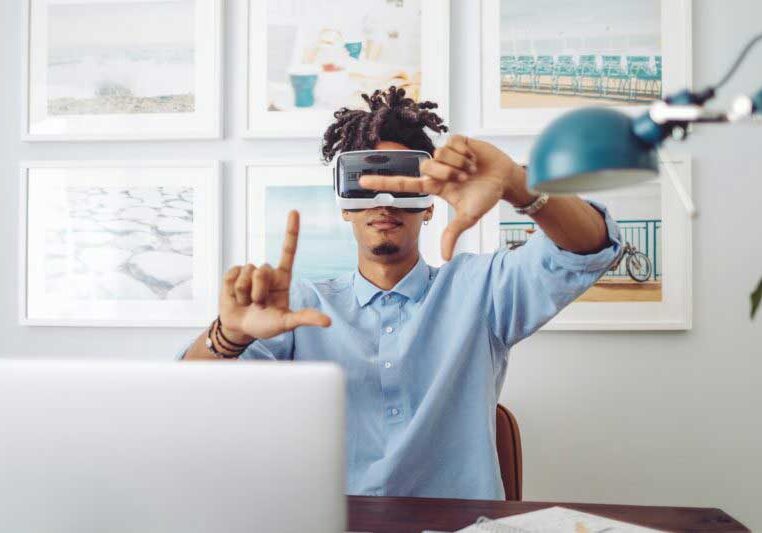Social media observers have been predicting the decline of Facebook for years, especially among millennials. Despite this, Facebook remains the biggest social media platform with 2.4 billion users in 2020. This puts Facebook above YouTube in terms of total users and growth over the last year.
In their 3rd quarter report, Facebook reported a rise in overall earnings and revenue-per-user, despite a small decline in users over the 3 months. Even with the setback, Facebook exceeded their own quarterly projections by bringing in $21.47 billion revenue.
Factors Affecting Growth and Revenue
Facebook did see an unexpected rise in users and activity in Q2 as a result of COVID-19. Naturally, more people are staying home, networking through social media and making more online purchases.
Although this is now stabilized, year over year growth is still strong. Facebook is leveraging its other social media acquisitions including Instagram, WhatsApp, and others to improve its advertising options and growth.
The Rise of VR Within Facebook
Oculus, one of the industry leaders in virtual reality (VR), began as a Kickstarter. It had a limited release, raising $2.5 million of crowdfunded capital in 2012 in exchange for early development versions of their VR headset. In 2014, Facebook acquired Oculus for $2 billion. VR was a nascent innovation in the early 2010s and the market penetration was limited. For comparison, the Playstation VR was released two years after the acquisition.
The motivation was a bit mysterious at the time until Facebook recently showed its hand by releasing the Oculus Quest 2. Consumers enjoy a high-quality, all-in-one VR headset at an affordable price, but not without a catch. The launch updated Oculus’ terms of service by requiring users to sign in with a verified FB account. Additional management allows Facebook to restrict access to those with fake accounts otherwise violating their terms of service. Under the terms of their updated privacy policy, Facebook is allowed to collect data while using their Oculus VR headset. A new pool of potential data is created to track user behavior while in VR.
Facebook is continuing down the VR path with their VR-only chat platform, Facebook Horizon. It’s still in beta testing, but aims to enhance user interaction on social media with virtual reality. Representatives believe they’re creating an “authentic and lifelike collaboration between people and colleagues” that will enhance the social media experience by taking away user-generated content and encourage world building. Integrated with this platform will be your avatar’s ability to touch, feel, and manipulate objects. Platform development will be supported by “in-game” ads, leveraging the data collection available within the environment.
Potential Roadblocks for Facebook Advertising
The nature of social media is constantly changing. As more platforms are integrating paid advertising in between user-generated content, the ethics of data collection is under scrutiny. Facebook has been battling for balance between protecting user data and optimizing targeted advertising. In addition to data protection, their platform has immense reach and potential to spread misleading information as exemplified by the 2020 election. This has led to a censorship for specific keywords and hashtags that affect paid ads as well. The screening process is both automated and internal, but the turnaround time to resolve false-positives is slow and greatly affect brands.
Apple’s iOS14 Update and Facebook Advertising
Another potential issue for Facebook’s data collection, which supplies user interest and demographic targeting to their advertising, comes from Apple’s new mobile OS. Under the terms of the new update, users have the power to manually control what apps can collect and share their data. Facebook has opposed this update, saying it will cripple its ability to effectively target personalized ads to users. Their argument is that this will impact small businesses who rely on paid ads to generate revenue. There hasn’t been substantial data since the iOS release, but we are anticipating the reports to see how this will affect paid advertising.
Future of Social Media and Paid Advertising
Facebook proves their leadership by staying ahead of trends, consistently increasing in revenue and users year-over-year. They diversify their investments into more platforms, technologies and revenue streams. Facebook’s management has been effective at identifying and investing in rising technologies to appeal to all users. Their vision for VR will change how brands advertise their products and services. The enhanced ability to engage with customers like never before will be a worthwhile feature for businesses. There is no reason not to expect Facebook to continue to heavily invest in, and leverage virtual reality (VR), augmented reality (AR), mobile social games, new social apps, and other new technologies going forward.
L7 Advertising will continue to monitor these tech trends and optimize our social media advertising strategies. Any changes in tech will ultimately affect the ecosystem it’s situated in, thus affecting companies of any scale. Contact us today to work with industry experts who can build a strong online presence for your business.
